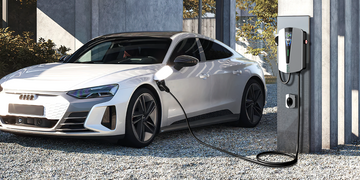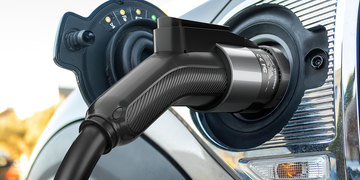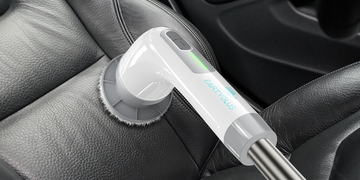Can you plug an EV charger into a regular outlet? All mass-produced electric vehicles today include a 110-volt-compatible (Level 1) charging unit which is able to be plugged into any standard 110v household outlet. The downside of EV charging with a 110v outlet is that it takes a while.
One common question that arises is whether it's possible to plug an EV charger into a regular household outlet. Let's delve into this topic to understand the feasibility and considerations involved.
Understanding EV Charging Levels
Before diving into the specifics, it's crucial to understand the different levels of EV charging:
Level 1 Charging: This utilizes a standard household outlet (120 volts) and typically offers the slowest charging speed. Level 1 chargers are often included with EVs and are suitable for overnight charging at home.
Level 2 Charging: These chargers require a 240-volt outlet, similar to those used for large appliances like electric dryers or stoves. Level 2 chargers offer faster charging speeds compared to Level 1, making them ideal for home installations and public charging stations.
DC Fast Charging (Level 3): These chargers provide the fastest charging rates and are commonly found at public charging stations along highways or major routes. DC fast chargers require specialized equipment and are not typically installed in residential settings.
Can You Plug an EV Charger into a Regular Outlet?
The short answer is yes, you can plug an EV charger into a regular household outlet, but there are important considerations to keep in mind:
Charging Speed: Charging an EV from a standard 120-volt outlet (Level 1) is significantly slower compared to using a Level 2 charger. While Level 1 charging is suitable for overnight charging and topping up a vehicle's battery, it may not provide sufficient power for daily commuting or long-distance travel.

Range Anxiety: Relying solely on Level 1 charging may lead to range anxiety for some EV owners, especially if they frequently drive long distances or have limited access to public charging infrastructure.
Outlet Compatibility: Not all household outlets are created equal. It's essential to ensure that the outlet you plan to use for charging is properly grounded and can handle the continuous load of an EV charger. Using an outlet that is not up to code or rated for the required voltage and amperage could pose safety risks.
Extension Cords: If you need to use an extension cord to reach the nearest outlet, make sure it is of high quality, rated for outdoor use (if applicable), and can handle the electrical load without overheating.
Telgeoot EV Charger
Say goodbye to range anxiety and hello to seamless travels with the Telgeoot EV Charger. Designed to keep your electric vehicle fully charged and ready for adventure, our charger combines cutting-edge technology with sleek design.
Fast, Efficient Charging: With Telgeoot, charging your EV is faster and more efficient than ever before. Say goodbye to long charging times and hello to more time on the road.
Smart Connectivity: Control and monitor your charging sessions from anywhere with our intuitive mobile app. Whether you're at home, work, or on the go, managing your EV's charging has never been easier.
Reliable Performance: Built to withstand the elements and deliver consistent performance, the Telgeoot EV Charger is your trusted companion for every journey.
Upgrade to the future of charging with Telgeoot. Power up your EV and embrace the freedom of electric driving today."
Considerations for Level 1 Charging
While Level 1 charging from a regular household outlet may suffice for some EV owners, it's essential to consider the following factors:
Charging Time: Level 1 chargers typically provide around 3-5 miles of range per hour of charging, depending on the vehicle's battery capacity and efficiency. For EVs with larger batteries, such as electric SUVs or trucks, overnight charging may not fully replenish the battery.
Daily Usage: Evaluate your daily driving habits and charging needs. If you have a short commute and ample time for overnight charging, Level 1 charging may be sufficient. However, those who require frequent long-distance travel may benefit from installing a Level 2 charger for faster charging speeds.
Alternative Charging Options: Explore alternative charging solutions, such as public charging stations or workplace charging, to supplement Level 1 charging and alleviate range anxiety.
Can you plug an EV charger into a regular outlet? While it is technically possible to plug an EV charger into a regular household outlet for Level 1 charging, it's essential to consider the charging speed, outlet compatibility, and daily usage requirements. Level 1 charging may suffice for some EV owners, especially those with short daily commutes and access to alternative charging options. However, installing a Level 2 charger at home provides faster charging speeds and greater convenience, especially for EV owners with larger battery capacities or frequent long-distance travel. Ultimately, the decision to use a regular outlet for EV charging depends on individual preferences, charging needs, and infrastructure considerations.





